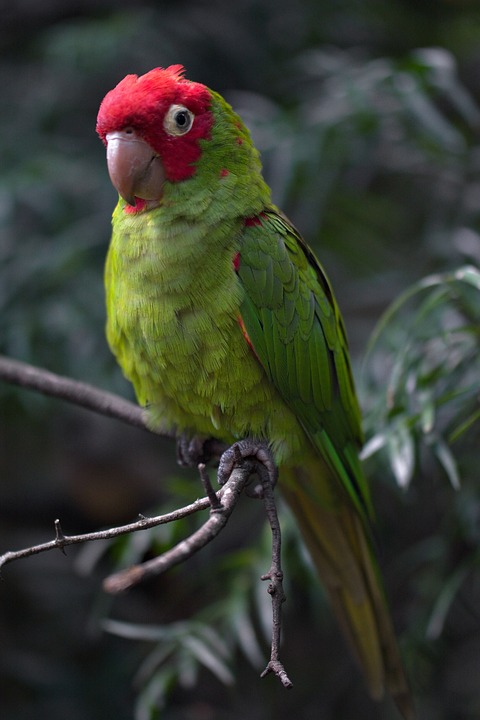Parrots are known for their playful and curious nature, which often includes exploring their surroundings with their beaks. Beak grinding or chewing is a natural behavior for these intelligent birds. However, excessive beak grinding or chewing can become a problem, potentially leading to health issues or destructive behavior. As a parrot owner, it’s essential to understand the causes behind this behavior and learn effective ways to discourage it. In this article, we will delve into the reasons behind excessive beak grinding or chewing in parrots and provide valuable tips to address this behavior.
Causes of Excessive Beak Grinding or Chewing
Parrots engage in beak grinding or chewing for various reasons. Understanding these causes will help you identify the root cause of your parrot’s behavior and take appropriate steps to discourage it. Some common causes include:
1. Boredom and Lack of Stimulation: Parrots are highly intelligent creatures that require mental and physical stimulation. When they lack sufficient environmental enrichment, they may resort to excessive beak grinding or chewing as a form of entertainment.
2. Anxiety and Stress: Parrots can experience anxiety or stress due to changes in their environment, lack of social interaction, or even health issues. Excessive beak grinding or chewing may serve as a coping mechanism for these birds.
3. Lack of Proper Diet: Nutritional deficiencies can manifest in various forms, one of which is excessive beak grinding or chewing. A diet lacking essential nutrients can lead to compulsive behaviors in parrots.
4. Dental or Beak Problems: Dental or beak issues such as overgrown beaks, misaligned teeth, or oral infections can contribute to excessive beak grinding or chewing. These problems can cause discomfort, leading the parrot to seek relief through repetitive beak movements.
Tips to Discourage Excessive Beak Grinding or Chewing
Now that we understand the potential causes behind excessive beak grinding or chewing in parrots, let’s explore some effective strategies to discourage this behavior:
1. Provide Ample Environmental Enrichment: Parrots need mental and physical stimulation to stay engaged and happy. Offer a variety of toys, puzzles, and foraging activities to keep their minds occupied and discourage excessive beak grinding or chewing.
2. Establish a Consistent Routine: Parrots thrive in a predictable environment. Maintaining a consistent daily routine helps reduce stress and anxiety, minimizing the chances of excessive beak grinding or chewing.
3. Social Interaction and Bonding: Parrots are social creatures that crave companionship. Spend quality time with your parrot, engaging in activities such as training sessions, gentle play, or simply talking to them. Building a strong bond with your parrot can alleviate stress and reduce the need for excessive beak grinding or chewing.
4. Provide a Nutritious Diet: Ensure your parrot’s diet is well-balanced and consists of a variety of fresh fruits, vegetables, pellets, and seeds. Consult with an avian veterinarian or an avian nutritionist to create a diet plan that meets your parrot’s specific nutritional needs. A healthy diet can help alleviate compulsive behaviors.
5. Regular Veterinary Check-ups: Schedule regular check-ups with an avian veterinarian to rule out any underlying health issues that may contribute to excessive beak grinding or chewing. Dental and beak problems can be identified and treated promptly, ensuring your parrot’s overall well-being.
FAQs
1. Is beak grinding or chewing always a problem?
Beak grinding or chewing is a natural behavior for parrots. However, when it becomes excessive and starts causing health issues or destructive behavior, it should be addressed.
2. Can excessive beak grinding or chewing lead to physical problems?
Excessive beak grinding or chewing can cause beak or dental injuries, nutritional deficiencies, or even self-mutilation if left unaddressed. It’s important to identify and discourage this behavior to prevent potential physical problems.
3. Are there toys specifically designed to discourage beak grinding or chewing?
Yes, there are toys available in the market that can help redirect your parrot’s beak grinding or chewing behavior. Look for toys made of safe materials, such as bird-safe woods or acrylics, that provide both mental and physical stimulation.
4. Can training help discourage excessive beak grinding or chewing?
Training sessions focused on positive reinforcement can be beneficial in redirecting your parrot’s behavior. Teach your parrot alternative behaviors, such as playing with toys or engaging in foraging activities, to replace excessive beak grinding or chewing.
Remember, each parrot is unique, and it may take time and patience to modify their behavior. By implementing these tips and understanding the underlying causes, you can create a stimulating and nurturing environment for your parrot, discouraging excessive beak grinding or chewing and promoting their overall well-being.









